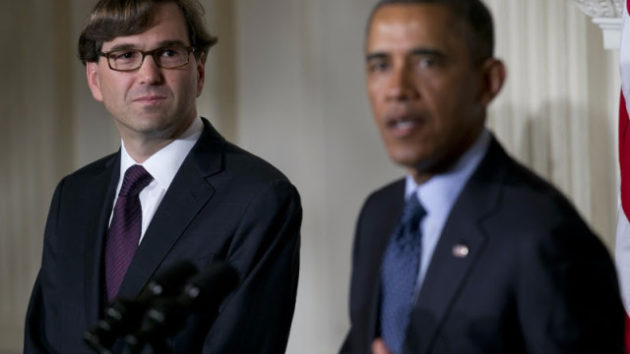Obama’s Econ Advisers: Occupational Licensing Is a Disaster by Mikayla Novak
Libertarians received a rare pleasant surprise when President Obamaʼs Council of Economic Advisers issued a report highly critical of occupational licensing.
The report cited numerous problems arising from this increasingly burdensome regulatory practice, which requires ordinary Americans to obtain expensive licenses and permits to perform ordinary jobs.
It is a belated recognition by the administration that government has long been acting against the best interests of workers and consumers.
And it might give us something of a warm inner glow to consider, as the Wall Street Journal recently did, that reforming occupational licensing could catalyze important economic reforms that transcend traditional political and ideological divides.
And reform is vital: each and every day, occupational licensing destroys the ability of individuals to freely and peacefully pursue their own livelihoods.
Licensing hurts workers
Occupational licensing locks countless of people out of dignified and meaningful job opportunities.
The CEA report indicates that more than a quarter of all workers in the United States need a government license or permit to legally work. Two-thirds of the increase in licensing since the 1960s is attributable to an increase in the number of professions being licensed, not to growth within traditionally licensed professions like law or medicine.
The data show that licensed workers earn on average 28 percent more than unlicensed workers. Only some of this observed premium is accounted for by the differences in education, training and experience between the two groups. The rest comes from reducing supply, locking competitors out of the market and extracting higher prices from consumers.
What makes professional licensing so invidious is that it serves as a barrier to entry in the labor market, simply because it takes so much time and money to obtain a license to work.
For young people, immigrants, and low-income individuals, it can be extremely difficult to stump up the cash and find the time — sometimes hundreds or even thousands of hours — to get licensed. The fees to maintain a license can also be exorbitant.
Compounding the problem is that licensing requirements are spreading into more industries, such as construction, food catering, and hairdressing — occupations where it used to be easy to start a career.
Today, there is arguably no more lethal poison for labor market freedom and upward mobility than occupational licensing.
Licensing hurts consumers
Defenders of occupational licensing say that workers need to be licensed because without it consumers would be harmed by poor service.
In the absence of licensing, children will be taught improperly at school, patients won’t get adequate health care in hospital, home owners will not get their leaky sinks fixed, and somebody could fall victim to an improper haircut.
But, in the name of promoting quality, licensing regulations perversely raise costs and reduce choices for consumers.
The CEA concludes that, by imposing entry barriers against potential competitors who could undercut the prices of incumbent suppliers, licensing raises prices for consumers by between 3 and 16 percent.
Moreover, the effect of licensing on product quality is unclear. The report notes that the empirical literature doesn’t demonstrate an increase in quality from licensure.
By restricting supply, licensing dulls the incentive for incumbents to provide the best quality products because the threat of new entrants competing with better offerings is diminished.
Perversely, the inflated prices offered by licensed providers may force some consumers to seek unlicensed providers, or to use less effective substitutes, or to do jobs themselves — in some cases increasing the risk of accidents.
In a blow to the notion of efficient government bureaucracy, the CEA indicates that government licensing boards routinely fail in monitoring licensed providers, contributing to the lack of improvement in quality.
Ending the war on livelihood freedom
To restore a climate friendly to economic liberty, people must feel they have a direct, personal stake in what Deidre McCloskey calls “market-tested betterment” — that is to say, in capitalism.
There is no better way to achieve this than to allow individuals to build their own livelihoods, finding decent jobs serving customers with the goods and services they want, at prices they mutually agree on.
The argument for economic liberty is also grounded in the moral imperative of respecting the freedom of other people to lead their own lives as they see fit, including their right to choose their own livelihood.
Proponents of occupational licensing can always serve up a parade of hypothetical horribles about things that could go wrong if people didn’t need the state’s permission to work, but nothing has been more harmful to workers and consumers than occupational licensing.
Mikayla Novak is a senior researcher for the Institute of Public Affairs, an Australian free market think tank, and holds a doctorate in economics. She specializes in public finance, economic history, and the history of classical liberal thought.




Leave a Reply
Want to join the discussion?Feel free to contribute!